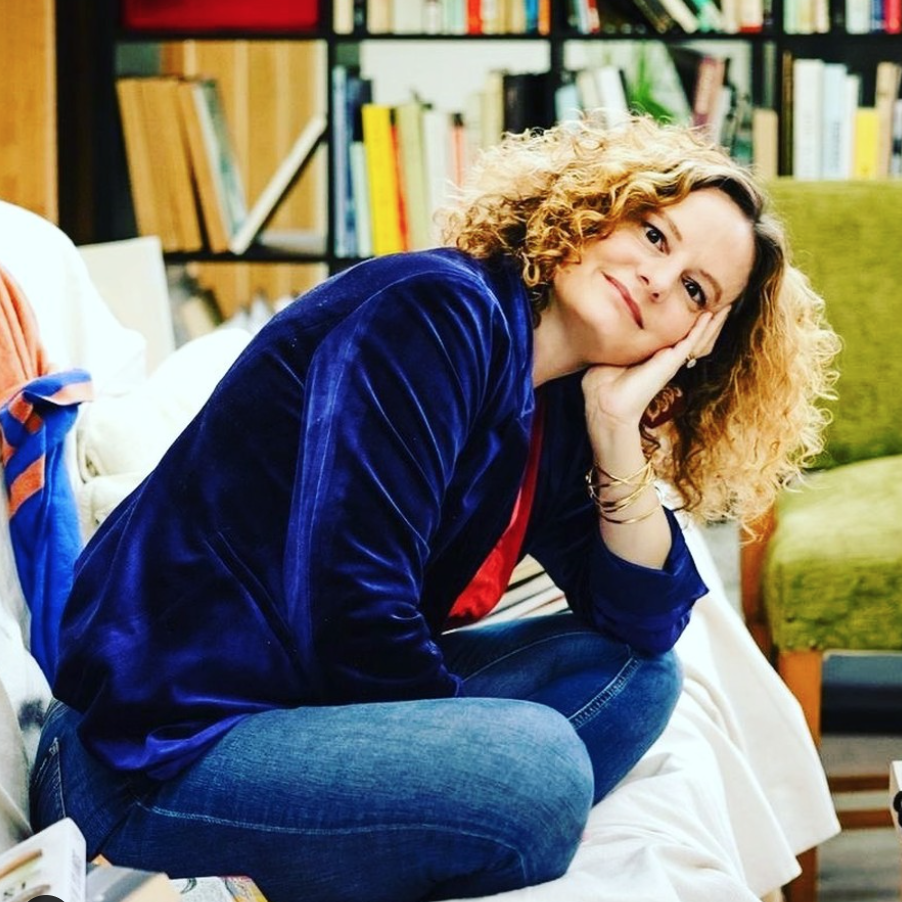
Sydney author Felicity Castagna has written four novels, her latest being Girls in Boys’ Cars. An internationally published author, Felicity’s 2018 novel No More Boats was a finalist in the 2018 Miles Franklin Literary Awards. She also publishes essays on home, suburbia, art-making and literature in many different places and reviews books for ABC radio and television. We asked Felicity a few questions about her experience with Street Libraries.
If you could put any book in a Street Library, what would it be and why?
I’d love to put more local stories into the street libraries around western Sydney. At the moment, we have the most amazing crop of emerging writers telling really complex, engaging and thought-provoking stories about the lives of people in western Sydney – books like The Coconut Children by Vivian Pham, The F Team by Rawah Arja and The House of Youssef by Yumna Kassab.
What book(s) are you currently reading, and what sorts of things do you look for in a ‘good book’?
As a writer, one of the most exciting things for me is to find books that show me stories can be told in ways that surprise, delight and challenge me to think about how experimental and dynamic stories can be. In this way some of the recently mind-blowing books I’ve read are Tara June Winch’s The Yield, Carmen Maria Machado’s In The Dream House and Helena Fox’s How It Feels To Float.
Have you come across a Street Library, if so where and what was your experience?
There are a few now around where I live in Parramatta. I like the way they surprise you when you turn around a corner – books are always the best surprises. I often wonder about the people exchanging books. You get books on the philosophy of economics right up next to books on fart jokes and the latest winners of the Booker Prize. It makes you consider just how eclectic and diverse the range of readers are in your own community.
Street Libraries are all about the sharing and discovering of new stories. Can you remember a time where you experienced such a discovery in your own life? What advice would you give on how to continue to pass on such explorations of literature?
I’m always making discoveries when I read but I think this was particularly true when I was a teenager and I got to read so many great young adult novels that not only spoke to my own experience but challenged me to sit beside people who were nothing like me. I think it’s really important that we give young people all kinds of stories in all different forms – stories that will challenge, inspire, infuriate and repulse them: Nothing new is learned in comfortable spaces.
What inspired you to become an author?
It’s a totally cliché author thing to say but I’ve always loved words. I love seeing what happens when you create different images on the page by editing and playing. I often start my books by thinking of a few really key images of my characters in place and the things I’d like to see them do and then I write that and then I go back and fill out all the gaps in the story so that writing becomes something like the process of putting together a puzzle.
If you could design your own Street Library in any way imaginable, how would it be decorated and why?
I’d love to make it a replica of my own home so that I’d have a second version of my home but a much better one because it would be filled with books instead of odd socks and the junk my kids leave on the floor.
